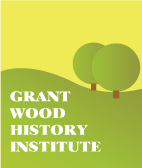Response-C. Denial-Question 1
In today's world where we have the software to alter photos and edit documents, how do we combat things like holocaust denial? How do we give students any confidence in drawing conclusions about what happened in the past when evidence itself is vulnerable to tampering and alteration?
Dr. Catherine Denial's Response
There are two ways we guard against being misled - the first is by stopping to understand where the evidence we have came from, and the second is by corroborating items with other evidence from the same era. In essence, primary sources must earn our trust.
Sourcing:
'Stop and Source!' is a tactic we talk about in our Bringing History Home workshops. Whenever we analyze a document, a photograph, an illustration, or an artifact, we first stop and ask:
- Who made this?
- When was it made?
- Where was it made?
- Why was it made?
These pieces of information help us become critical consumers of historical evidence. They help us work out the context in which a document or an image was created and ask who benefited from it being made. They help us anticipate the ways in which that document or image might be constructed to relate a very particular point of view. If we don't know who made the document, image, or artifact, why it was made, or when, then we know to approach the item with a healthy dose of skepticism.
Corroboration:
Historians never base their conclusions on a single piece of evidence - rather, they compare primary sources (documents, images, and artifacts left from the era the historian is studying) to find patterns. A single piece of evidence that suggests the Holocaust never happened (perhaps by omitting the location of concentration camps from maps, for example) would hold very little weight in comparison to the thousands of pieces of evidence that suggest the opposite is true. The same is true for our students - they can compare evidence to see where patterns occur and learn that the strongest arguments are those that can be proved from multiple sources, not just one.
